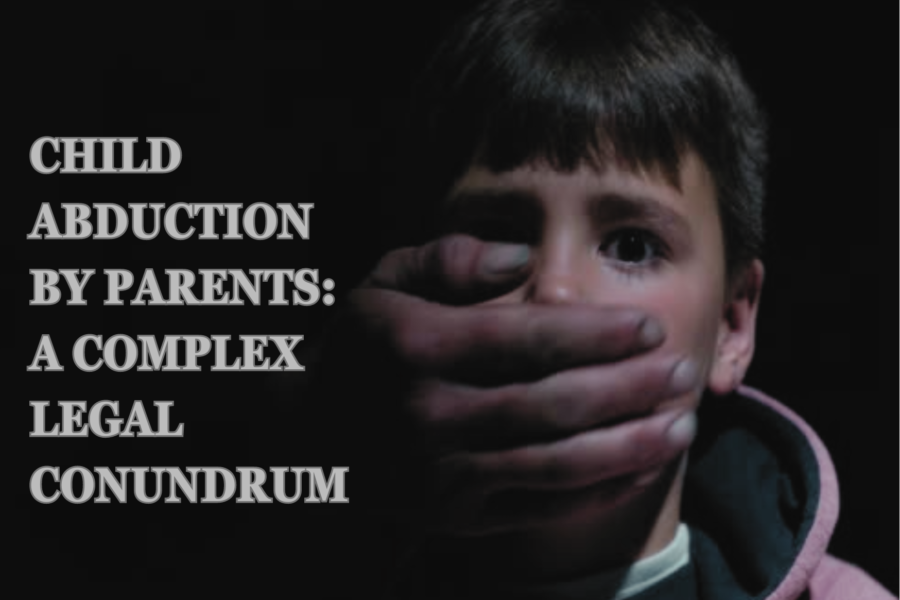Introduction
When it comes to the issue of child abduction by parents, the legal landscape can be complex, especially in countries like India that are not signatories to international conventions like the Hague Convention on the Civil Aspects of International Child Abduction.
The recent Bombay High Court ruling, quashing an FIR registered against a father for allegedly kidnapping his own minor child from the custody of the mother, has brought this issue into sharp focus.
The Court’s ruling hinged on the fact that the father, as a natural and legal guardian, cannot be charged with kidnapping under Section 361 of the Indian Penal Code when taking the child from the mother’s custody, unless there is a legal prohibition by order of a competent court. This decision highlights the nuances involved in determining what constitutes child abduction by a parent and the legal rights and obligations that come into play.
Child Abduction in India
In India, the concept of child abduction or separating a child by one parent from another is not explicitly classified as a criminal offense. However, any “taking, retention or concealment of a child or children by a parent or other family member, or his or her agent, in derogation of the custody or visitation rights of another parent, family member or legal custodian” is generally regarded as child abduction or parental kidnapping.
Navigating this convoluted issue involves considering several factors that determine whether a parent’s actions constitute child abduction or not.
- Firstly, the legal status of the parent who has ‘abducted’ the child – whether they have legal custody or not – plays a crucial role.
- Secondly, the existence of any court orders pertaining to the custody of the child is a key consideration.
- Additionally, the intent behind the child’s removal by the ‘abducting parent’ is also scrutinized.
For an aggrieved parent to successfully prosecute the ‘abducting parent’ for parental kidnapping, several elements must be met. These include
- Maliciously taking away, enticing away, keeping, withholding, or concealing a child from their lawful custodian (who may be the other parent)
- The child being under the age of 18
- The ‘abducting parent’ not having the right to custody of the child
- The intention of detaining the child from their lawful custodian
Natural Guardianship and Parental Rights in India
According to Section 6(a) of the Hindu Minority and Guardianship Act, a father is considered the natural guardian of a child, and after him, the mother would have rights over the child. However, for a minor who has not completed the age of five years, their custody would ‘ordinarily’ be with the mother.
The Supreme Court clarified that the word ‘after’ in this Section did not mean that the mother was not entitled to being the natural guardian of the child during the father’s lifetime; it meant that the mother steps in “in the absence of the father.” Absence could imply “temporary or otherwise or total apathy of the father towards the child or even inability of the father by reason of ailment or otherwise.”
When do Parental Actions Become Illegal?
There are circumstances where a parent’s actions in taking away their child from the other parent become illegal.
- If one parent has the sole physical custody of their child, it becomes illegal for the other parent to take them away.
- After the visitation period, the parent who does not have custody of their child must always return the child to the parent who has custody. Failure to do so is treated as a violation of the court’s custody order.
Due to the absence of proper laws governing cases of “abduction” by one parent, such cases are often treated as custody battles in India, with Guardianship Petitions filed under Section 9 of the Guardians and Wards Act, 1890.
International Complications
The legal intricacies become even more convoluted in cases involving international disputes, where the welfare of the minor child becomes the priority. In such instances, courts may order the immediate restoration of the child if there is a possibility of immediate harm. Even if a child has adapted to a new country after being moved from another, and their continued presence in that country proves detrimental, the court may order repatriation for the child’s well-being.
The landmark case of Prateek Gupta v. Shilpi Gupta reinforced the principle that the welfare of the child must take precedence as the foremost overriding consideration, while also factoring in pre-existing foreign court orders as one of the elements in deciding custody matters. The applicability of the doctrine of “comity of courts” would depend on various facts and circumstances, keeping the child’s welfare at the forefront.
India’s Non-Signatory Status
India’s non-signatory status to the Hague Convention on the Civil Aspects of International Child Abduction further complicates the legal landscape. The Convention seeks to safeguard children from the harmful effects of abduction and retention across international borders by establishing procedures to facilitate their prompt return and ensure that custody and access rights under the law of one contracting state are effectively respected in other contracting states.
Without being a party to this Convention, India can be viewed as a ‘safe haven’ for child abductors who remain within the country’s borders, as there is no specific legislation addressing this issue.
Conclusion
Therefore, the issue of child abduction by parents remains a complex and low-priority area of law in India. Conflicting civil custody orders and the involvement of courts from multiple jurisdictions frequently complicate parental kidnapping cases.
The eventual agreement about custody may often reflect the parents’ interests rather than the child’s. In a child custody dispute, the focus is on the child’s future, but ordinarily, the child is not an active participant in the process. Prioritizing child rights in cases of parental issues is a much-needed step toward addressing this unique situation that demands a specific articulation of child rights.
Contributed by-
Saachi Minocha
National Law University, Jodhpur (2023-28)

